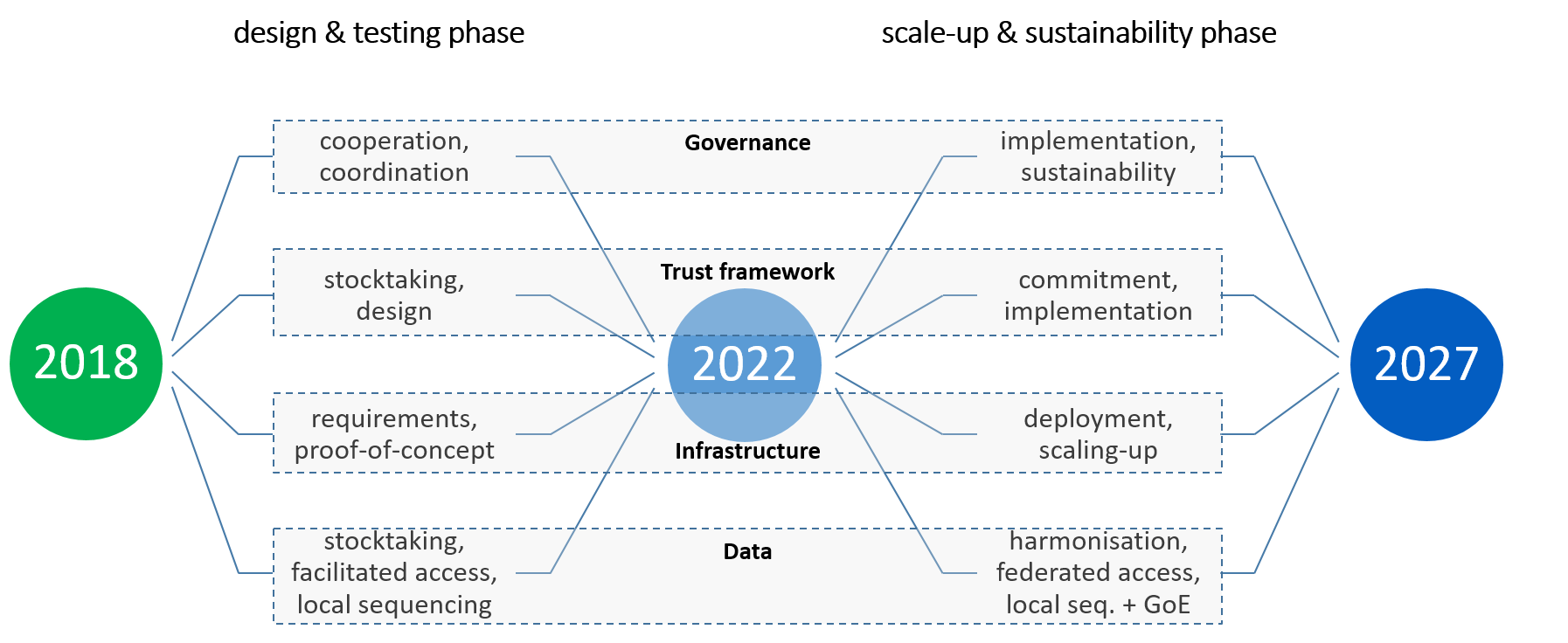Seeking to address urgent social and economic challenges, such as the aging population and the need to modernize education and workforce skills, Japan has launched Society 5.0 aiming at developing a new economic model and social contract based on technological innovations. In 2018, the government of Japan introduced the very first regulatory sandbox to support innovative companies and start-ups. The regulatory sandbox, issued by the Prime Minister's Office, is supervised by the Industrial Structure Council affiliated with the Ministry of Economy, Trade, and Industry’s Economic and Industrial Policies Office. It is also being implemented by 129 private companies, including Panasonic, Caulis Inc., Kansai Electric Power Company, and Crypto Garage.
Funded as part of the new economic policy package, this legislative system aims at accelerating the development of new business models and innovative technologies in Japan, while encouraging the participation of both domestic and foreign companies. Specifically, the sandbox will accelerate the approval of projects, increasing investments and economic returns.
Testing projects under the regulatory sandbox is a way to ensure the success of new business models in the actual job market, hence allowing the government to evaluate the effectiveness of the regulatory sandbox, its practical advantages, and societal benefit. Following the success of the regulatory sandbox, the company obtains legislative exemptions enabling it to expand its operations and enter the market more quickly.
Companies and entities have the opportunity to apply to the regulatory sandbox to obtain exemptions that enable them to provide services and perform tasks that do not fall under traditional models or categories in accordance with the Act on Special Measures for Productivity Improvement. Consequently, the regulatory sandbox establishes a supportive business environment and creates innovative practices and technologies.
The regulatory sandbox was specifically designed for companies wishing to perform activities that require employing modern technologies or new models, which may interfere with Japan's current regulations. A company can apply to implement its operations perceived as "demonstrations," rather than existing activities, within a limited period of time extending from 3 to 6 months, in addition to learning more about the partners who have previously obtained approval. These demonstrations involve collecting and using data in consultations on legislative reforms, which facilitate the establishment of innovative companies, as well as new business models and technologies. The Cabinet Legislation Bureau then reviews the participants' interpretation of the legislation and responds accordingly. This regulatory sandbox is expected to continue until the end of 2020, although a timeline has not been confirmed yet.
This plan does not offer any additional funding for the selected companies, while concurrent legislative procedures may support promising technology companies that need funding to be able to implement their mechanisms or deliver their final products.
Since this plan is not connected to specific geographic areas, it is possible to implement the regulatory sandbox in any sector. However, this system focuses on specific strategic development areas that include the Internet of Things, artificial intelligence, big data, and blockchain, in addition to financial services, healthcare, and means and options for transportation and mobility.
To understand the relationship between the regulatory sandbox and other systems related to systems review, a cooperative and consultative relationship must be guaranteed with foreign companies or companies with foreign affiliations. The regulatory sandbox team purchases the necessary systems and performs advanced preparations with each concerned minister, in addition to supporting the creation of submission forms. The team also stresses the importance of new technology, legislation, and regulations, clarifies the correct form of explanatory processes, and appoints the responsible minister.
In the next phase, a request for consideration is sent to the Office for Promotion of Regional Revitalization, the Council for Regulatory Reform, and the relevant entities and ministries to cooperate with one another and come up with decisions. The entity requests demonstrations or business activities and establishes the regulatory sandbox, which is meant to act as a law that governs special measures aimed at improving productivity. This regulatory sandbox targets innovative technologies and a limited number of participants within specific time periods and does not impose any prerequisites to review the legislation.
Since its launch in 2018, the regulatory sandbox has approved pilot projects presented by 129 companies, including Panasonic that will experiment with IoT technology in home appliances by using power-line communication that will carry data through the existing power cables, eliminating the need for expensive infrastructure. The regulatory sandbox also witnessed a promising collaboration between Caulis Inc. and Kansai Electric Power Company to implement a project aimed at identifying cases of unauthorized opening of bank accounts online and alerting the relevant public entities.
Tokyo-based cryptocurrency firm Crypto Garage is testing Bitcoin-based Blockchain technology SETTLENET to improve settlement processes between cryptocurrency markets. Through this project, the cryptocurrency trading markets in Japan will be authorized to use SETTLENET to circulate the digital currency JPY-Token, pegged to the Japanese yen, thus becoming the very first cryptocurrency to be approved by the government.
LOOP, the transportation and mobility company, is conducting an experiment involving shared service vehicles, in addition to a pilot program on campus to assess the safety of multiple types of vehicles for both young and elderly users. Moreover, Glafit, specializing in multimodal transportation, has also developed an e-bike that is more advanced than the previous models. It is equipped with an engine or pedals or operates in hybrid mode. It is also lightweight and foldable for storage.
The regulatory sandbox has been well received by many thanks to its role in the development of new technologies and its support for the growth of start-ups. This regulatory sandbox has proven successful through experiments in fintech that would maximize the impact of technological competencies in the country and expand the range of financial solutions, which are consistent with the progressive policies proposed by Japan.






